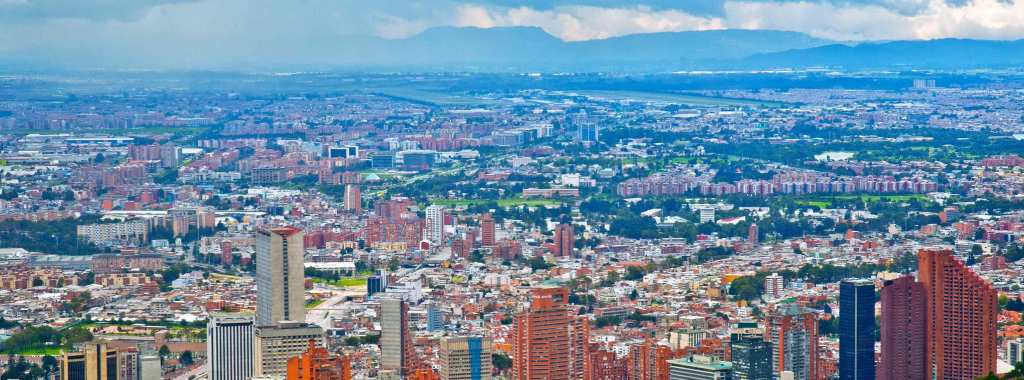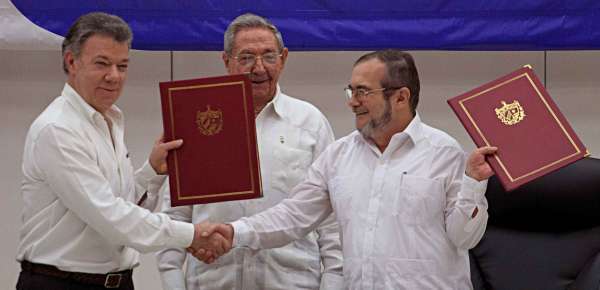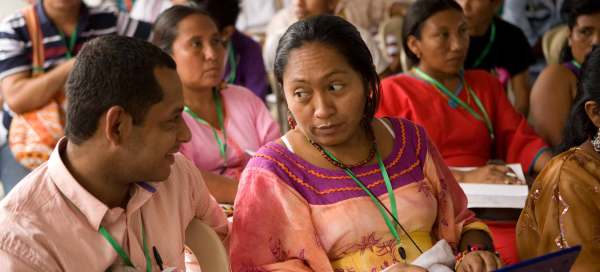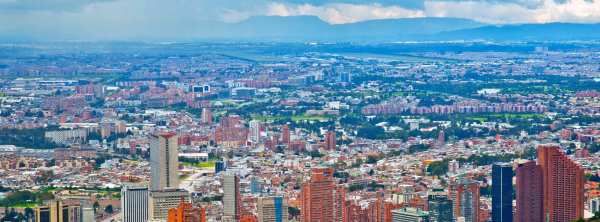
On September 5, 2016, the Ford Foundation will open a new regional office in Bogotá, Colombia, which will become the headquarters for our work in the Andean Region. Javier Ciurlizza, the foundation’s Andean regional director, discusses the strategy behind the move, inequality in Colombia, the historic peace agreement, and what’s ahead for the region.
Why did the Ford Foundation choose Bogotá, Colombia, as the location of its new regional office for the Andean Region?
In the 1960s, one of the Ford Foundation’s first outposts in Latin America was in Bogotá, so our work in Colombia is not new. Since then we’ve supported projects and initiatives ranging from the improvement of agriculture in the Valle del Cauca region by providing the initial funding to create the International Center for Tropical Agriculture, to education initiatives like our work with the Universidad de los Andes to support Afro-Colombians pursuing a postgraduate career, to protecting human rights and human dignity through the Colombian human rights movement. Colombia has always been a priority for our efforts in the Andean Region, but as the country struggles toward peace and a more just society, it is increasingly important that we broaden our presence here.
What is the foundation’s strategy in the region?
Our work will focus in Colombia and Peru in three main areas: increasing the voice and power of indigenous peoples and Afro-descendant communities, elevating the need for a more equal fiscal policy, and enhancing transparency in the extractive industry,and improving the industry’s relationship with local communities. This work will be supplemented by a close focus on the postconflict efforts in Colombia. We will also examine how Ford can be useful in preventing the further deterioration of living conditions due to the political crisis in Venezuela. As we have for decades, we will continue to pay close attention to other developments in the region and adjust our strategy accordingly.
What are the key drivers of inequality in Colombia?
Colombia has high levels of income inequality, but inequality in the country must be looked at from several different perspectives. In many Latin American countries, a growing middle class is able to flourish in urban cities with stable infrastructure and public services. This is in stark contrast to rural areas in many parts of the region that lack access to good jobs and basic services.
In Colombia, this situation has been exacerbated by the decades-long armed conflict between the government and guerrilla groups like FARC. The high costs of this conflict have fallen mostly on rural populations. Further worsening this problem is the fact that Colombia lacks governmental control over many of these rural territories. Advancing equality and justice in Colombia will require increased oversight across the country. There must also be a focus on fighting corruption to ensure that each community’s particular needs are met regarding development, public services, and equality.
Additionally, while Colombia is one of the few countries in the region with sound macroeconomic management and strong growth, economic prosperity has not benefited all Colombians. For example, job prospects for Afro-Colombians have been particularly challenging and it is disproportionately harder for an indigenous child in Colombia to access quality schools compared with a middle-class child. Colombia’s public services have been neglected and a result, citizens have to heavily rely on the private sector to deliver critical public goods and services like education. Colombia must focus on strengthening its public services and ensuring that economic growth benefits all Colombians, including minority, low-income, and rural residents.
What will the foundation focus on in Peru?
Peru has made significant progress in reducing poverty, in adopting innovative social policies, and in adhering to principles of good macroeconomic management. However, inequality is still pervasive, especially in rural areas. The anticipated “trickle down” effect of Peru’s economic prosperity has not been realized and Peruvians are expecting the government to address this problem. Many hope the problem will be tackled under President Pedro Pablo Kuczynski’s new administration.
In this context, we will continue our work supporting civil society organizations, indigenous groups, and others in Peru, particularly around the increasing social conflicts that could turn violent. We also want to open a broader conversation around the extractive industry and how Peruvians will adjust to a new economic environment. We want to learn from local communities about how they’ve adapted to this new context and how Peruvians have made progress regarding its own violent past.
The Colombian government and the FARC guerrillas have recently signed a comprehensive agreement that would put an end to an important armed conflict. How does this affect Ford and its work as it opens its new office in Bogotá?
The government’s and FARC’s hard work to negotiate a peace deal is a major historical moment and a huge step toward achieving equality in the country. The focus of the peace agenda and negotiations goes well beyond the end to fighting or the granting of mutual concessions. The agreement includes critical issues such as the transformation of rural areas, better access to political participation for all, a new approach to the farming of illicit crops, and a way to deal with the rights of the victims of armed conflict.
Putting these agreements and programs into place will be difficult, but the foundation hopes that our renewed presence in Colombia and ongoing work with victims’ rights organizations, human rights defenders, social leaders, and the Colombian government can continue to open a dialogue and facilitate real and lasting change. All Colombians deserve a better future, more equality and prosperity, and Ford will work with our partner organizations to achieve these goals.
What other issues in the region will the new Ford office in Bogotá be working on?
We will keep an eye on other developments in the region, like the political crisis in Venezuela and constitutional reform in Chile, where there is an opportunity to address the rights of indigenous peoples and to tackle a long-standing conflict. We want to learn from recent social processes in Bolivia and Ecuador how these nations have made progress in elevating multiculturalism and ethnic issues. We will continue cooperating with our colleagues in Brazil and Mexico on broader Latin American regional projects, such as providing support for law firms engaged in pro bono work defending collective rights. Finally, we want to explore how philanthropy can continue to expand in the region, building off of our progress in Colombia.



